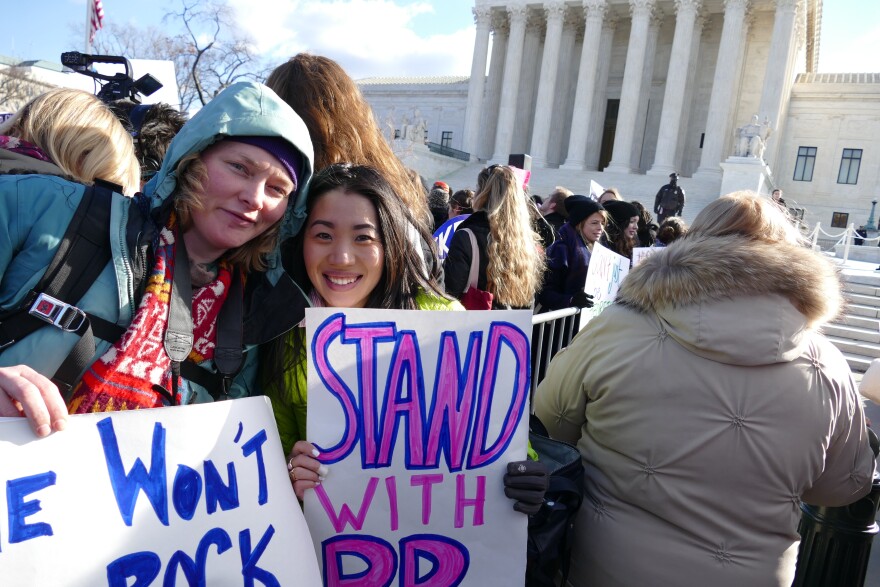The Supreme Court heard arguments Wednesday about a controversial Texas law that imposes strict requirements on health clinics that provide abortions. The law requires doctors to have admitting privileges at local hospitals and meet ambulatory surgical standards.
The case is hugely consequential for abortion providers in Kansas and Missouri because both states have similarly restrictive laws.
Jackie Casteel, an abortion-patient advocate, and Bonyen Lee-Gilmore, a spokesperson for Planned Parenthood of Kansas and Mid-Missouri, traveled to Washington, D.C., as part of a contingent of abortion rights activists that gathered in front of the Supreme Court today. A group of anti-abortion demonstrators was there too.
"If these laws are upheld we will see abortion providers vanish," Lee-Gilmore told KCUR in a telephone interview. "If they are stricken then I think that we will definitely see doors start to re-open and we will be able to better argue in our state courts the undue burden that it puts on women and the unconstitutional standards that it sets in our state."
Casteel had an abortion in 2003 at Planned Parenthood's Columbia, Missouri, health center. That clinic was forced to stop providing abortion services after the University of Missouri Health Care system, bowing to pressure from the Missouri Legislature, voted to remove admitting privileges for the clinic's physician.
Casteel says she would have found it exceedingly difficult to access abortion services if current laws were on Missouri's books when she had her abortion. Missouri now has only one abortion provider, in St. Louis.
"It would have made my journey a lot harder and made the cost great and could have even led me to have to self-induce," she says.
With the vacancy created by Justice Antonin Scalia's recent death, Justice Anthony Kennedy is expected to provide the Supreme Court's crucial swing vote in the case. The court is expected to hand down its decision in June.
Matt Hodapp produces Statehouse Blend for KCUR.



